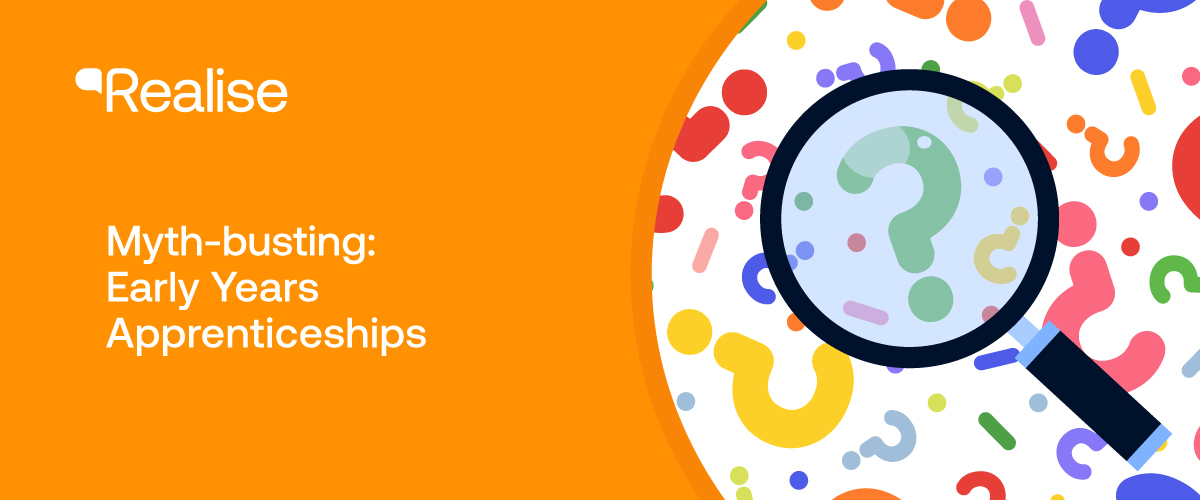Myth Busting: Early Years Apprenticeships
Topics


At Realise, we love getting out and about, meeting with early years employers whenever and wherever we can. These conversations are always insightful, and one thing has become increasingly clear – many employers simply don’t have all the information they need about apprenticeships. That’s completely understandable! With funding rules, qualification requirements, and government policies constantly evolving, it can be tricky to keep up.
That’s where we come in. As the UK’s leading early years apprenticeships provider, we’re here to make things clearer, bust some common myths, and ensure you have the right knowledge to make informed decisions about training and recruitment. We’ve gathered some of the most frequent questions we hear from employers and are sharing the answers with you.
Let’s get started!
How can employers fund apprenticeships, and is it expensive?
Funding an apprentice is more affordable than many think. Employers can use the Apprenticeship Levy or access government co-funding, meaning many businesses pay little to nothing for training.
- Large employers (with a wage bill over £3 million) pay into the Apprenticeship Levy, which they can use to fully fund training.
- Small businesses (those not paying the levy) contribute just 5% of the training costs, with the government covering the remaining 95%.
- Employers may also be eligible for incentive payments, helping with recruitment costs and salary support.
Reference: Apprenticeship funding rules – GOV.UK
Is Maths still a requirement for Early Years apprentices?
No! Thanks to a recent change from the Department for Education (DfE), Functional Skills Maths is no longer required to complete an Early Years Educator apprenticeship.
- This decision removes a significant barrier for many learners, ensuring more people can successfully qualify and progress in their careers.
- Employers can now recruit apprentices based on passion, commitment, and practical ability rather than maths ability.
This change opens doors for aspiring early years professionals who may have previously struggled with the maths requirement.
Reference: DfE Apprenticeships Announcement – GOV.UK
What should you expect from a good training provider?
A high-quality training provider should deliver much more than just coursework—they should be an active partner in the development of your apprentice.
A good provider, such as Realise Training, will:
- Deliver high-quality teaching and support that aligns with the apprenticeship standard.
- Meet funding compliance rules, ensuring government money is used appropriately.
- Provide clear progress tracking for both the apprentice and employer.
- Communicate regularly to ensure the apprentice receives the right support.
- Prepare the apprentice for their End-Point Assessment (EPA).
If a provider fails to meet these standards, you have the right to question their service or request a change.
Reference: Realise Training – Early Years Apprenticeships
Keep an eye out for more Early Years apprenticeship myth-busting – coming soon!